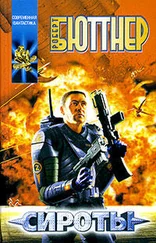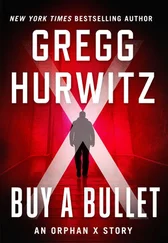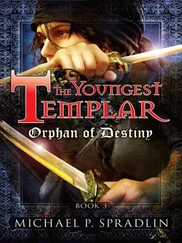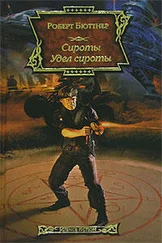Роберт Бюттнер - Orphan's Journey
Здесь есть возможность читать онлайн «Роберт Бюттнер - Orphan's Journey» весь текст электронной книги совершенно бесплатно (целиком полную версию без сокращений). В некоторых случаях можно слушать аудио, скачать через торрент в формате fb2 и присутствует краткое содержание. Жанр: Боевая фантастика, на английском языке. Описание произведения, (предисловие) а так же отзывы посетителей доступны на портале библиотеки ЛибКат.
- Название:Orphan's Journey
- Автор:
- Жанр:
- Год:неизвестен
- ISBN:нет данных
- Рейтинг книги:3 / 5. Голосов: 1
-
Избранное:Добавить в избранное
- Отзывы:
-
Ваша оценка:
- 60
- 1
- 2
- 3
- 4
- 5
Orphan's Journey: краткое содержание, описание и аннотация
Предлагаем к чтению аннотацию, описание, краткое содержание или предисловие (зависит от того, что написал сам автор книги «Orphan's Journey»). Если вы не нашли необходимую информацию о книге — напишите в комментариях, мы постараемся отыскать её.
Orphan's Journey — читать онлайн бесплатно полную книгу (весь текст) целиком
Ниже представлен текст книги, разбитый по страницам. Система сохранения места последней прочитанной страницы, позволяет с удобством читать онлайн бесплатно книгу «Orphan's Journey», без необходимости каждый раз заново искать на чём Вы остановились. Поставьте закладку, и сможете в любой момент перейти на страницу, на которой закончили чтение.
Интервал:
Закладка:
The huge ship skipped like a stone across the top of the planet’s ionosphere, but we felt no motion. We might as well have been standing in the still gallery of an aquarium, watching a flaming ocean flow by.
I said, “So, in a couple minutes, we land. Then we die.”
Howard lunged past Jude, and thrust the control yoke full forward.
I grabbed Howard’s arm. “Are you nuts?”
Jude’s eyes widened, and I looked up, to see what he saw.
The horizon had disappeared. The Firewitch had been cruising like a Clipper reentering Earth’s atmosphere, parallel to the ground. Howard had plunged the Firewitch into a kamikaze dive straight down toward the planet’s surface.
Howard said, “Four thousand miles per hour. But slowing.”
I heard Jude’s rapid breathing, felt no motion.
Within two heartbeats, we shot low enough that I saw the rocky ridges of low mountains. In another blink, mossy, jagged boulders and scrub brush became clear.
Snow patches dusted the ground in the shadows under the brush.
I closed my eyes.
Everybody screamed at once.
We were still diving at two thousand miles per hour when the Firewitch splattered against the planet like a gnat against a speeder’s windshield.
TWENTY
SOMEONE HAD STRAPPED A SCHOOL BELL to my head, and it wouldn’t stop clanging. My cheek was cold and all I could see was rock as grainy and gray as headstones.
Was I dead and buried?
Corpses didn’t feel icy wind.
I levered myself onto my knees, and looked around. I knelt on gray sandstone — grow up in Colorado, know your rocks — under gray clouds.
To figure out whether my eardrums had ruptured, I shouted out loud to myself over the ringing in my ears. “It’s not the twenty-story fall that kills you, it’s the sudden stop.”
Not only did I hear myself, I understood what Howard had done. The Firewitch had protected its payload from acceleration to two-thirds of light speed, and from gravity strong enough to squeeze the sun inside a golf ball. So protecting us when we hit a brick wall at two thousand miles per hour had been small beer.
Howard had crashed us on purpose, because he knew a crash was more survivable than a soft landing in a nest of a hundred thousand Slugs.
I looked around. The Firewitch, itself, didn’t land soft. Fist-sized Slug-Hull fragments lay impact-blasted across the scrub-covered rock over a radius so large that the fragments looked like poppy seeds. The War had taught us that when a Slug ship blew, it blew into nothing but junk. That’s why the intact Firewitch was so valuable. Had been so valuable.
My armor’s heaters kicked in as wind scuffed a twig across the rock of my new home. Mine alone?
My suit’s audio and ’Puter nested between my shoulder blades, formed into the Eternad underlayer, alongside the battery pack. But the antennae were mounted in my absent helmet. My earpiece was connected, but useful now only to block wind.
I shouted, “Jude?”
Nothing.
“Howard? Sergeant Major?”
I cupped my hands, then shouted over and over, turning through 360 degrees. Only wind screeched back.
I screamed so loud and so long for them that I panted and saw spots. I wore no helmet, but I seemed to be breathing fine. Much on this planet might kill me, though it seemed the atmosphere wouldn’t.
But my ears burned, numbed by the wind. I unfurled the weather hood from my armor’s neckring, tied the drawstrings beneath my chin, then turned round again.
The rock on which I stood sloped up behind me toward snow-capped mountains, and down toward flat prairie that stretched to the horizon. The Firewitch had blown itself to rutabagas against what on Earth would be called foothills.
I visored my hand over my eyes, scanned the landscape, and wished I still had my helmet optics. But there was little to see.
The watery sun had already dipped below the peaks at my back. Across the prairie, in a sliver of sky between clouds grayer than Earth clouds and the horizon, one of the moons rose, huge and pale.
The sun went down, and clouds snuffed the moonlight. I stumbled in the dark for an hour, calling for the others, as the temperature dropped. Finally, I found a wind- shadowed crevasse between boulders and tucked myself in to it.
During the final hours of our inbound voyage, Howard had Jeeb calculate this planet’s rotational period; he got 24.2 Earth hours per day. I recalibrated my wrist ’Puter, assumed the sun had set at eighteen hundred hours, and agreed with myself that where the sun set would be west, where it rose east, and north and south would be at right angles to those directions.
My body ached and my eyelids drooped. Eternads aren’t pajamas, but the underlayer is padded. The motion of breathing, and the occasional rollover during sleep, stores enough kinetic energy to recharge their batteries.
I fell asleep cold, and awoke colder, in the dark, when cold sleet stung my cheeks. It rattled off my armor, ricocheted off rock, and puddled in the bare depressions that pocked my new home. My head pounded from snot that packed my sinuses. The first night sleeping outdoors after a layoff always sucks.
I turned my face to shelter against the rock, then flashed my wrist ’Puter. Zero three hundred.
At three in the morning human biorhythms hit low ebb. It’s a great time to catch your enemy napping by mounting a night attack, to attempt suicide, and to feel sorry for yourself.
I thought about my broken promise to Munchkin, that I would return Jude safe to her. I thought about failing once more to put mission ahead of troops, when it came time to blow the Exit Tube charges. I thought about the woman I didn’t get to marry, and about too many friends buried.
Mostly, I thought that I was now marooned for eternity, so far from home that I couldn’t find the sun if I had the Hubble Bubble, an orphan once again. I hugged my rock pillow, wiped my nose on my gauntlet’s snozz pad, and cried.
At four, the sleet quit, the clouds parted and the second moon — the blood-red one — shone down as it traveled among the unfamiliar stars, from north to south. If I was looking at Sol, somewhere among those billion sparks, the light I saw could have left the Solar System centuries ago.
Five A.M. brought red-glowing dawn in the east.
By sunrise, I had scooped puddled sleet into a rock depression, and melted it with meager Eternad exhaust. Alien bacteria might kill me, but dehydration certainly would, so I drank until I belched.
I peeled off my armor and washed, shivering, with the remaining water. Eternad padding is anti-microbial, but after a few days, you don’t care for the smell of yourself in Eternads. I re-dressed, then I blew my nose like a saxophone until I could breathe through it again.
My ablutions were no hot shower and coffee, but an infantryman learns after many nights on cold ground that if your body feels beaten, your mind does, too.
I stood at the edge of the debris circle that marked the Firewitch’s remains. The circle seemed centered downslope from me. Anything or anyone else that had been saved by the ship’s gravity cocoon likely also lay along or within the debris perimeter. I picked my way along that perimeter, stooping to examine every cinder for life signs.
I also broke twigs, laid stone cairns, and generally tried to mark my trail, so that if the others crossed my path, they could follow it and find me.
An hour later, the debris-field edge had turned me east, downslope. The lower I descended through boulder fields toward the plain, the thicker the vegetation grew. To me, the brush looked like mesquite; scrawny twigs with scabrous green leaves withering to brown, mixed among gnarled pines with stunted needles. This far from ground zero, the mesquite had had a few leaves blown off by our explosive arrival, but remained intact enough that I couldn’t see through it.
Читать дальшеИнтервал:
Закладка:
Похожие книги на «Orphan's Journey»
Представляем Вашему вниманию похожие книги на «Orphan's Journey» списком для выбора. Мы отобрали схожую по названию и смыслу литературу в надежде предоставить читателям больше вариантов отыскать новые, интересные, ещё непрочитанные произведения.
Обсуждение, отзывы о книге «Orphan's Journey» и просто собственные мнения читателей. Оставьте ваши комментарии, напишите, что Вы думаете о произведении, его смысле или главных героях. Укажите что конкретно понравилось, а что нет, и почему Вы так считаете.








![Дэн Бюттнер - Где живет счастье [Правила жизни самых счастливых людей планеты] [litres]](/books/395574/den-byuttner-gde-zhivet-schaste-pravila-zhizni-samyh-thumb.webp)


